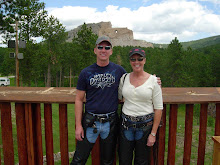The article discussed the "eclipse of generalship" in modern rule sets.
Normally this type of thing doesn't bother me, but when its thinly veiled criticism of mechanisms not used in an author's own set, it does bother me. Rather than implying, or outright stating that other mechanisms are bad - let's hear why YOUR set(s) don't suck. I mean really - man up and own it.
Some of the discussions:
"Wargames Must Have Accurate and Credible Command & Control"
Huh? By whose definition? What is "accurate and credible"? Apparently PIP systems, rolling for actions, or any card system fails to meet the author's criteria. Blch.
Next: "Wargames Must Have Accurate and Credible Combat Mechanisms".
HUH??? That is the STUPIDEST thing I've ever read. Accurate and Credible? By whose definition? Evidently, only his. Not that he would have let us know what is accurate and credible - just listing those that aren't. Any thought that a game PROCEDURE/MECHANISM has to be accurate and credible is absolutely ridiculous. Maybe we're supposed to smack each other....as soon as your opponent calls "uncle" you've won the melee. What drivel.
Finally: "Wargames Must Have Accurate and Credible Terrain".
What can I say after the other two categories. All wargames terrain is an abstraction, and its effect in the game is entirely dependent on that particular game's mechanisms.
I guess the overall point of the author was that modern sets are directed too much toward speed of play and having fun. HUH??? Oh, I see - I think the hobby would be much better suited to slower playing games that aren't fun. That would be much more Accurate and Credible.
Sometimes this hobby just ticks me off.
"Huh? What is this "Accurate and Credible" garbage that you speak of? SQUIRREL!!!!"
My bike is "Accurate and Credible"
I wonder if the wargame's police think this is "Accurate and Credible"?
I think a better measurement standard from this author would instead have been:
"Credible Realistic Accurate Procedures".
I'll leave you to figure out the acronym.

Some very Credible painting on those French. Top class.
ReplyDeleteAll the best
Airhead
I think the article had a lot of good points. I can see how it can be viewed negatively as it does appear to criticize rather than offer alternatives but I think the points are valid and I think he wants to see more of a shift back to 'war' rather than 'game'. Now that won't suit everyone depending on your approach to the hobby.
ReplyDeleteAccurate and credible Command and Control is always a difficult one. I play Cold War Commander and a series of bad command rolls can ruin a game. Yes, you can always find a 'reason' for the inactivity but at times it just doesn't seem 'right'. The same applies to the combat mechanisms. I don't want overly complex rules and I don't want every combat to be a foregone conclusion, but overly abstract systems (simple and fun) can create some bizarre situations. Again, you can make up a reason for it, but should you have to? You expect SOME situations to be foregone conclusions but if you've always got no chance in some situations then the fun goes. I like some of the innovative systems around at the moment but at times I find them frustrating. And finally, terrain. I think this was one of the weaker arguments. It's important and it must have the right effect on the game.
I think part of the problem with the article is if you view in terms of the scale/type of games the author plays (or at least has written rules for) then I think his comments make sense. It is a slightly 'Old School' approach to rules but none less valid for it. I want my games to reflect history but not to the exclusion of fun. Everyone's balance point for this will be different.
I'm planning a review of the mag on my own blog soon and your comments have given me a lot to think about when I come to this article. Cheers! Andy
There is a thread on the Old School Wargames list (of all places) by this guy who insists that virtually everything we need to know and do in a wargame is quantifiable (even the effect of ancient weapons, like slings and javelins, based on modern trials/reanactors - wnder how many p[eople were killed or mamed in those trials?), and that everyting that isn't quantifiable is irrelevant, and that rules that introduce the friction of war by hamstringing the players ability to carry out their plans are unsupportable. While no one would debate the usefulness/necessity of objective data, his utter obstinacy in refusing to grant any validity to alternate points of view had me give up after addressing the flaws in his argument twice. I now simply delete any and all posts in that thread as unread. His perfect rules are, of course unspecified and unpublished.
ReplyDeleteI have the biggest problems with the terms "accurate and credible". Those terms mean absolutely NOTHING with regards to process, which is what his article is concerned with - process. I agree that "accurate" (in as much as a game with toy soldiers can be accurate in representing the horror of combat) is an admirable goal and should be every rule's target. "Credible", on the other hand, is just absurd. That's entirely in the eye of the beholder. Process is process. I don't care if the process calls for consulting a table and rolling a die, rolling multiple dice, rolling dice competitively, playing rock paper scissors, or pulling colored M&Ms out of a bag - its the RESULT that matters. Certain processes may be preferred and more comfortable to players, but that doesn't mean they are more or less credible.
ReplyDeleteBrent